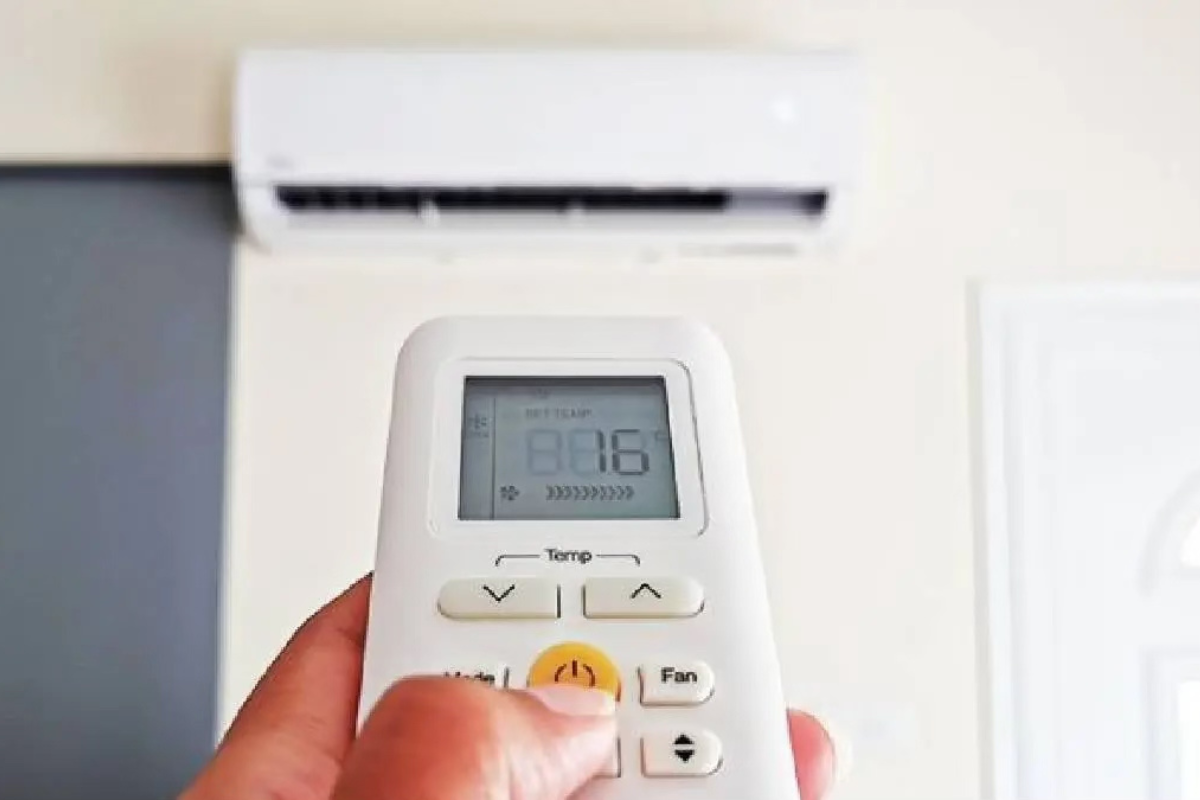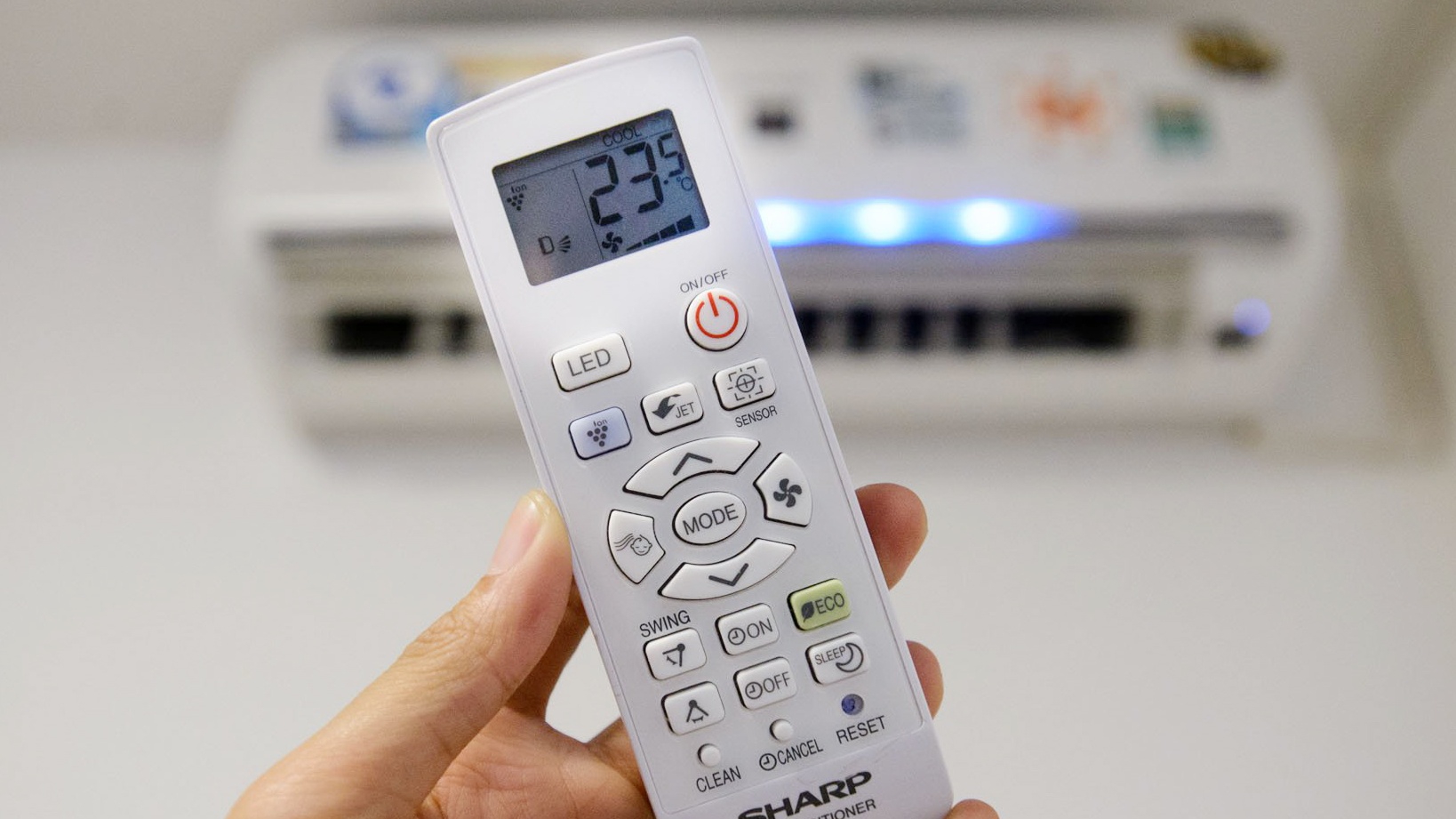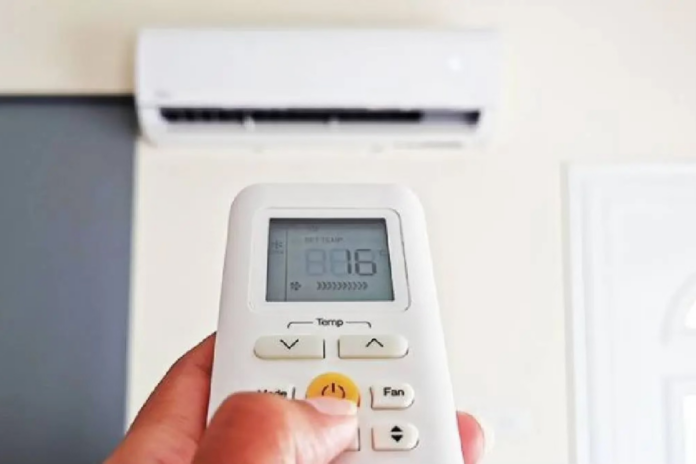Both Hanoi and Ho Chi Minh City are experiencing scorching hot days with high temperatures. According to the National Center for Hydro-Meteorological Forecasting, outdoor temperatures have reached nearly 40 degrees Celsius. Amidst the blazing heat, the ideal space for many is a room with air conditioning, closed doors, and whirring fans, minimizing outdoor exposure as much as possible.
However, a paradox that is scientifically grounded is that the hotter it gets, the more one should avoid turning the air conditioning temperature too low. It sounds illogical but is highly persuasive!
Why shouldn’t you set the air conditioning too low in hot weather?
Common air conditioning units today are designed to function optimally when outdoor temperatures range from 40 to 42 degrees Celsius. When the outdoor temperature exceeds this range, setting the air conditioner to a very low temperature, such as 16 to 20 degrees Celsius, will cause the machine to run continuously without reaching the desired temperature. As a result, the air conditioner operates non-stop, without any rest, which can lead to overload and malfunction over time. “This increases the risk of overload and reduces the lifespan of the unit, especially for the outdoor condenser unit, which is directly exposed to high temperatures,” warned EVN.

The air conditioner operates continuously without any rest, which can lead to overload and malfunction over time. (Illustrative image)
“When the outdoor unit has to operate in an environment with outdoor temperatures reaching 40 degrees Celsius and above, forcing the compressor to run at full capacity to achieve a very low temperature will increase the risk of short circuits and malfunctions”, said MSc. Nguyen Thi Minh Phuong, Cold Engineering Expert (Hanoi University of Technology) added.
High Power Consumption
When the air conditioner has to operate continuously to maintain a very low temperature, especially during peak hot days, electricity consumption will soar. This not only causes a staggering increase in electricity bills but also puts pressure on the power grid, not to mention the risk of fire and explosion if the electrical system is overloaded.
On the other hand, setting the air conditioner to a higher temperature, around 26 to 30 degrees Celsius, with a smaller temperature difference between the indoor and outdoor environments, the machine will operate more stably, able to turn off and rest intermittently, thus saving energy and prolonging the lifespan of the equipment.
Risk of Heat Shock
Dr. Nguyen Thi Thuy Hau, from the Department of Internal Medicine at Tam Anh Hanoi General Hospital, said that using air conditioning improperly, such as setting the temperature much lower than the ambient temperature, can cause heat shock to the user. This condition is characterized by a rapid change in body temperature from hot to cold, resulting in adverse health effects.

Using air conditioning at very low temperatures not only affects the equipment but also poses potential health risks to users. (Illustrative image)
Anyone can experience heat shock when there is a sudden change in body temperature. Specifically, this can happen when someone moves from a hot outdoor environment to a cold room, takes a bath and immediately enters an air-conditioned room, or gets in and out of a car when there is a significant temperature difference between the outdoor environment and the air-conditioned car…
The symptoms of heat shock can start mildly, such as dizziness, nausea, cold symptoms, stuffy nose, but can progress to more severe conditions such as high fever, rapid heart rate, low blood pressure, and even stroke if not treated promptly.
How should air conditioning be used correctly during the summer?
The golden rule is to avoid overworking the air conditioner. When the weather gets hotter, set the air conditioning to a reasonable temperature, around 26 to 30 degrees Celsius. This will provide a comfortable cool environment while being beneficial for health and the longevity of the equipment. Additionally, combining the use of fans can help improve air circulation and avoid prolonged exposure to direct cold air.
When coming in from the sun, it is recommended to use a fan for about 10 minutes before turning on the air conditioner. When entering a room, stand by the door, turn on the air conditioner at a high temperature, and then gradually lower the temperature. Turn off the air conditioner about 20-30 minutes before leaving the room, and stand by the door for a few minutes to get used to the outside environment before stepping out.
Air Conditioner Inverter Economic Quandary During Hottest Days Of 30/4 – 1/5 Holidays
Actual experiments have shown that if you use the inverter air conditioner, users can save a surprisingly large amount of money as compared to the regular air conditioner.





































